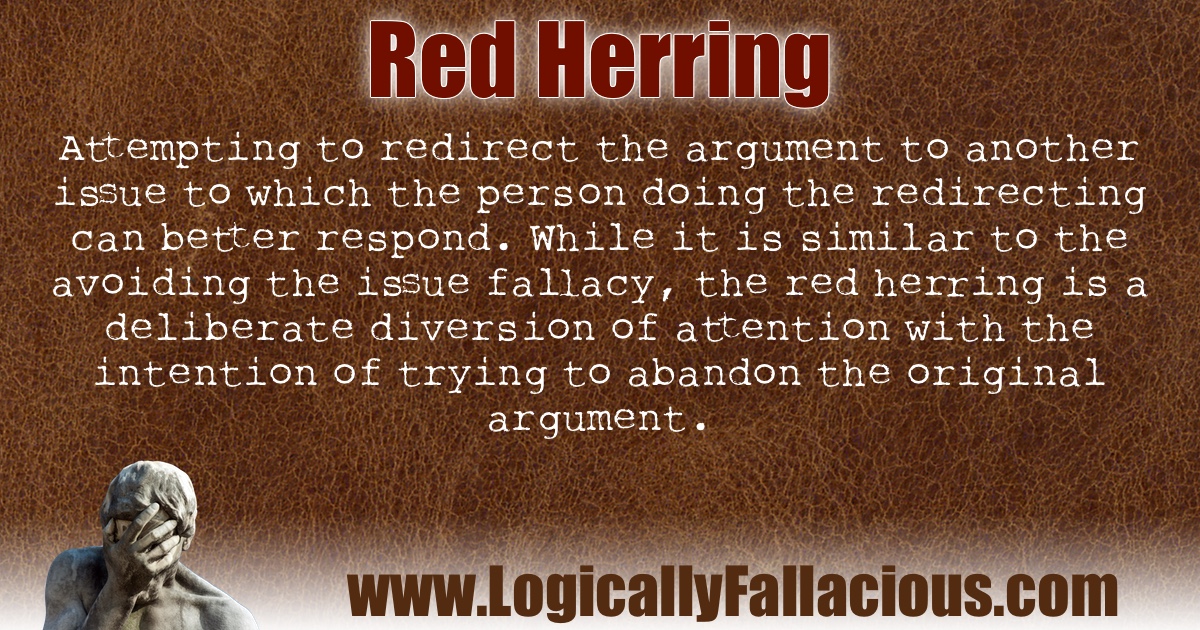Ignoratio elenchi
(also known as: beside the point, misdirection [form of], changing the subject, false emphasis, the Chewbacca defense, irrelevant conclusion, irrelevant thesis, clouding the issue, ignorance of refutation)
Description: Attempting to redirect the argument to another issue to which the person doing the redirecting can better respond. While it is similar to the avoiding the issue fallacy, the red herring is a deliberate diversion of attention with the intention of trying to abandon the original argument.
Logical Form:
Argument A is presented by person 1.
Person 2 introduces argument B.
Argument A is abandoned.
Example #1:
Mike: It is morally wrong to cheat on your spouse, why on earth would you have done that?
Ken: But what is morality exactly?
Mike: It’s a code of conduct shared by cultures.
Ken: But who creates this code?...
Explanation: Ken has successfully derailed this conversation off of his sexual digressions to the deep, existential, discussion on morality.
Example #2:
Billy: How could the universe be 6000 years old when we know the speed of light, the distance of astronomical objects (13+ billion light years away), and the fact that the light has reached us[1]?
Marty: 6000 years is not a firm number. The universe can be as old as about 10,000 years.
Billy: How do you figure that?...
Explanation: Marty has succeeded in avoiding the devastating question by introducing a new topic for debate... shifting the young-earth creation timeline where it does not necessarily coincide with the Bible.
Exception: Using a red herring to divert attention away from your opponent's red herring, might work, but do two wrongs make a right?
Variation: Misdirection is a more generic term for diverting attention away from something. This could be for the purpose of entertainment, avoiding embarrassment, or any other purpose including argumentation.
Tip: Impress your friends by telling them that there is no such fish species as a "red herring;" rather it refers to a particularly pungent fish—typically a herring but not always—that has been strongly cured in brine and/or heavily smoked.

References:
Hurley, P. J. (2011). A Concise Introduction to Logic. Cengage Learning.
[1]The most distant object yet confirmed in the universe is a self-destructing star that exploded 13.1 billion light years from Earth. The object is a gamma-ray burst (GRB) – the brightest type of stellar explosion. The burst is dubbed GRB 090423 for the date of its discovery.